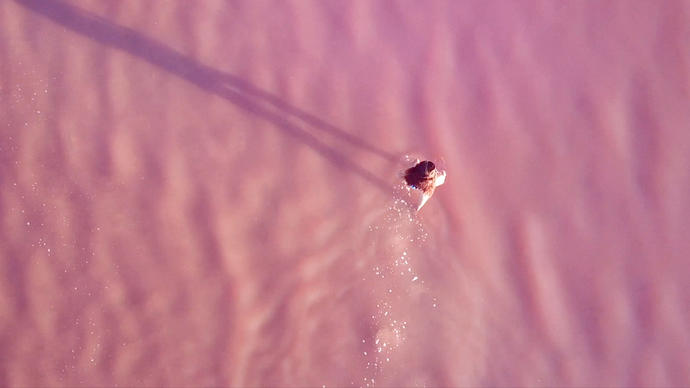This double-bill shows determined women to succeeded in the workplace, but were often forced to deny who they really were or to battle daily for the same worker’s rights afforded to men. They were exploited by male bosses, expected to work for lower wages than men in parallel positions, and vulnerable to sexual harassment. And for African-American women, these problems were compounded by racism.
The first, a narrative film centred on a light-skinned black studio executive who must hide her race to succeed in the male-dominated industry; and the second is an oral history of three female unionists in the Great Depression.
*This film has been locally classified by the City of London Corporation
Curated by: Ann Deborah Levy and Kirsten Larvick, Co-Chairs, the Women’s Film Preservation Fund, with programming assistance from Susan Lazarus and Amy Aquilino
Bonnie Greer was born in Chicago, Illinois and is a former New Yorker and participant in the city’s innovative 'Downtown Culture' of the late ‘70s to mid ‘80s . She was also part of the Black Students Movement of the early '70s, where she became politically active. She has lived in the UK since 1986, and has been a dual national US/UK citizen for over 20 years. She is the author of numerous plays, books, and a libretto. Her last play was produced in 2016 during the run-up to the 2016 American election. She is a frequent cultural and political commentator on TV and was awarded an OBE for her contribution to the arts.
The Women's Film Preservation Fund (WFPF) is the only programme in the world dedicated to preserving the cultural legacy of women in the industry through preserving films made by women. Founded in 1995 by New York Women in Film & Television in conjunction with the Museum of Modern Art (MoMA), WFPF has preserved more than 150 American films in which women have played key creative roles. These include works by early feminists, women of colour, social activists and artists that represent unique and irreplaceable contributions to American cinematic heritage. Films already preserved range from those of early pioneers, Lois Weber and Alice Guy Blaché, experimental filmmaker, Maya Deren, animator Mary Ellen Bute, to more contemporary feature director Julie Dash; director and cinematographer Jessie Maple; documentarians Trinh T. Minh-ha and Barbara Kopple, and more. The WFPF is rewriting the film history books, one moving picture at a time.
More information can be found online at: www.womensfilmpreservationfund.org
New York Women in Film & Television (NYWIFT) supports women calling the shots in film, television and digital media. NYWIFT energises the careers of women in entertainment by illuminating their achievements, providing training and professional development, and advocating for equality. The preeminent entertainment industry association for women in New York, NYWIFT brings together nearly 2,100 women and men working both above and below the line. NYWIFT is part of a network of 40 women in film chapters worldwide, representing more than 10,000 members.
More information can be found online at: www.NYWIFT.org







